Rule question - advantage rule
-
 Podcast
Podcast 

-
-
 Podcast
Podcast 






-
 Podcast Stream
Podcast Stream 
Open Stream in
New Window

-
-
 Support Demonland
Support Demonland 



 2021 Premiership
2021 Premiership 
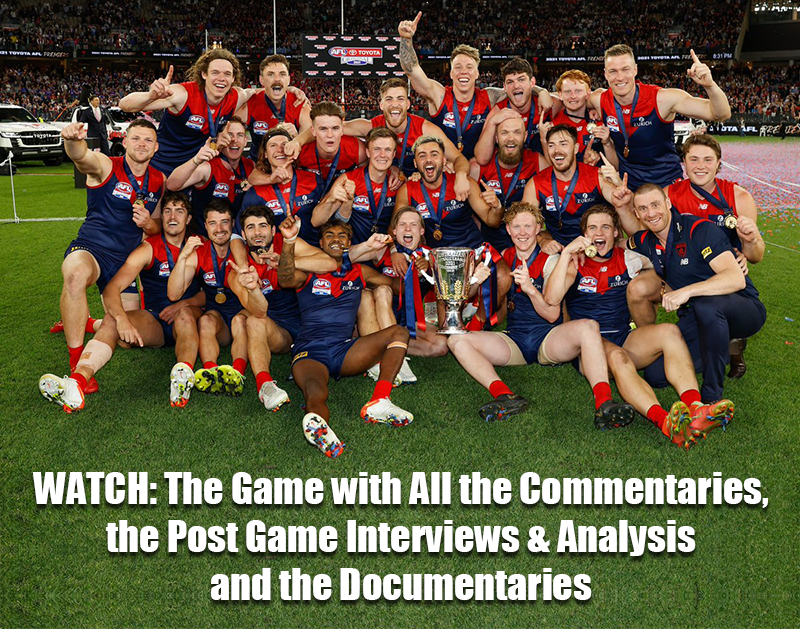
 Social Media
Social Media 








 Trade & Draft Forum
Trade & Draft Forum 
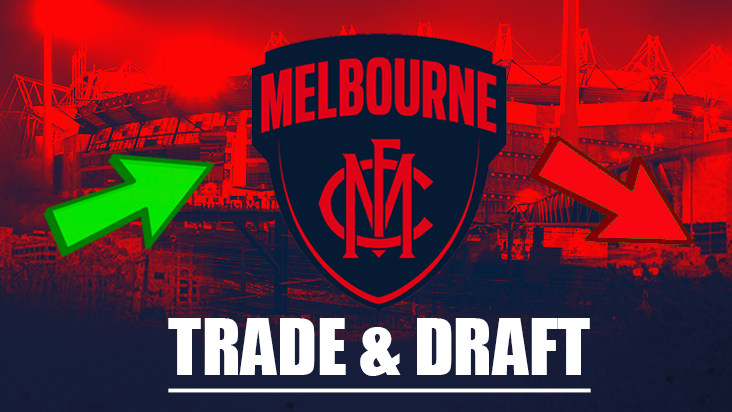
 Preseason Training
Preseason Training 
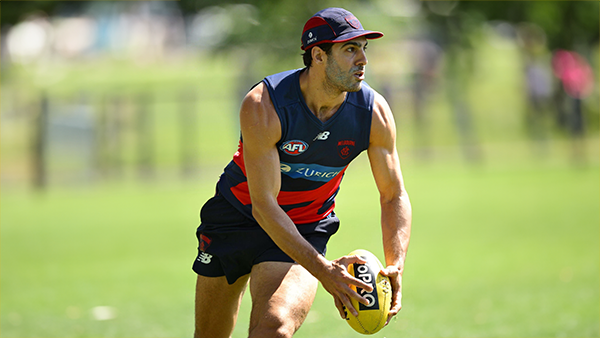
Friday, 22nd November 2024
Demonland Trackwatchers were out in force on a scorching morning out at Gosch's Paddock for the final session before the whole squad reunites for the Preseason Training Camp ...
READ MORE
Demonland | November 22 
 2024 AFL Draft
2024 AFL Draft 

UP IN LIGHTS by Whispering Jack
Those who watched the 2024 Marsh AFL National Championships closely this year would not be particularly surprised that Melbourne selected Victoria Country pair Harvey Langford and Xavier Lindsay on the first night of the AFL National Draft ...
READ MORE
Demonland | November 21 
 2024 AFL Draft
2024 AFL Draft 
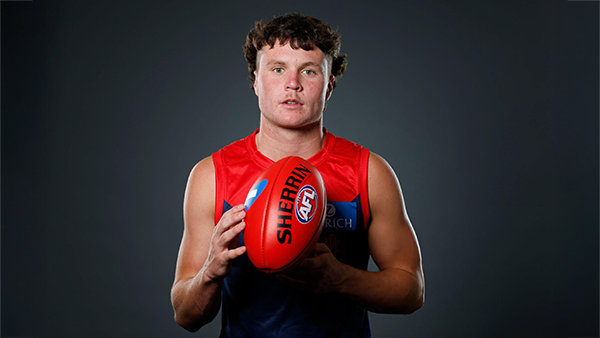
Welcome to Demonland: Harvey Langford
With the Demons first selection in the 2024 AFL Draft they took ready made midfielder Harvey Langdord from the Dandenong Stingrays at Pick 6 ...
READ MORE
Demonland | November 21 
 2024 AFL Draft
2024 AFL Draft 
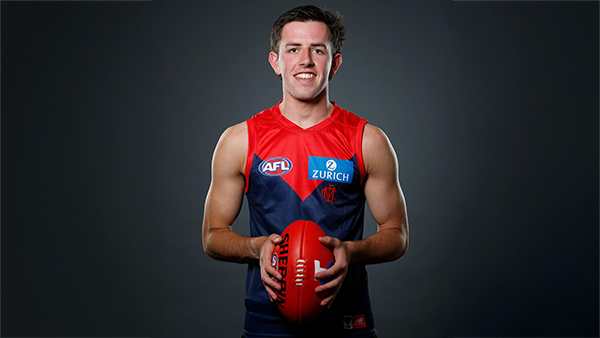
Welcome to Demonland: Xavier Lindsay
With their second selection in the 2024 AFL Draft the Demons selected Gippsland Power midfielder Xavier Lindsay at Pick 11 ...
READ MORE
Demonland | November 21 
 Preseason Training
Preseason Training 
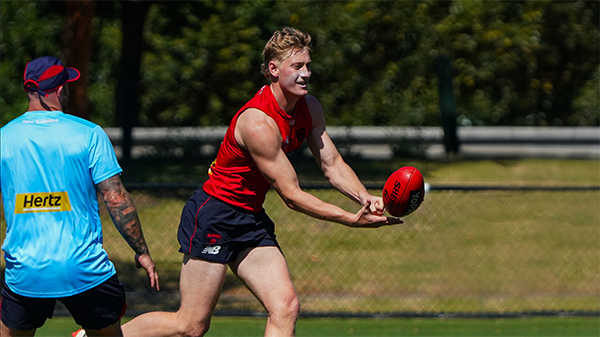
Wednesday, 20th November 2024
A plethora of Demonland Trackwatchers arrived on a beautiful cool morning down at Gosch’s Paddock to bring you their observations from today’s session ...
READ MORE
Demonland | November 20 
 Preseason Training
Preseason Training 
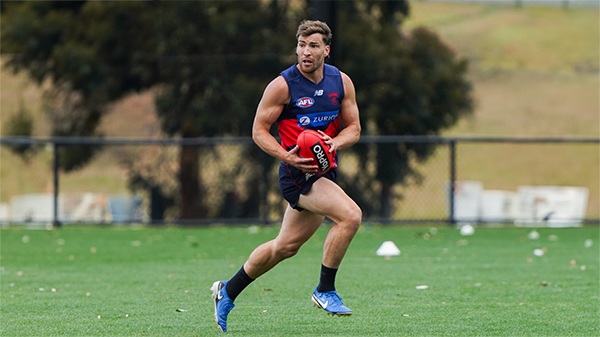
Monday, 18th November 2024
Demonland Trackwatchers ventured down to Gosch's Paddock for the final week of training for the 1st to 4th Years until they are joined by the rest of the senior squad for Preseason Training Camp in Mansfield next week ...
READ MORE
Demonland | November 18 
 Player Reviews
Player Reviews 
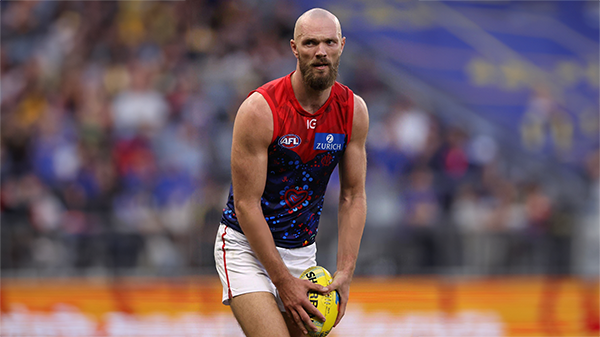
2024 PLAYER REVIEW: Max Gawn
Champion ruckman and brilliant leader, Max Gawn earned his seventh All-Australian team blazer and constantly held the team up on his shoulders in what was truly a difficult season for the Demons ...
READ MORE
Demonland | November 18 
 Preseason Training
Preseason Training 
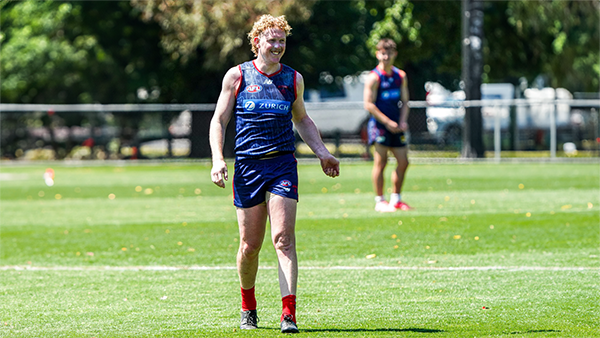
Friday, 15th November 2024
Demonland Trackwatchers took advantage of the beautiful sunshine to head down to Gosch's Paddock and witness the return of Clayton Oliver to club for his first session in the lead up to the 2025 season ...
READ MORE
Demonland | November 15 
 Player Reviews
Player Reviews 
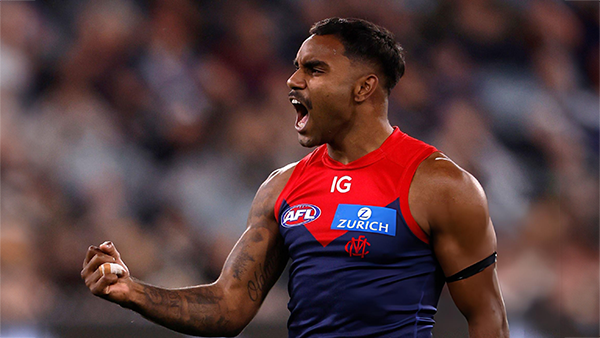
2024 PLAYER REVIEW: Kysaiah Pickett
The Demons’ aggressive small forward who kicks goals and defends the Demons’ ball in the forward arc ...
READ MORE
Demonland | November 15 
 Player Reviews
Player Reviews 
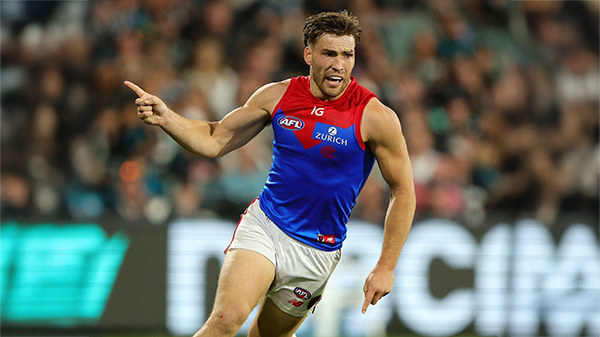
2024 PLAYER REVIEW: Jack Viney
The tough on baller won his second Keith 'Bluey' Truscott Trophy in a narrow battle with skipper Max Gawn and Alex Neal-Bullen and battled on manfully in the face of a number of injury niggles ...
READ MORE
Demonland | November 14 
 Player Reviews
Player Reviews 
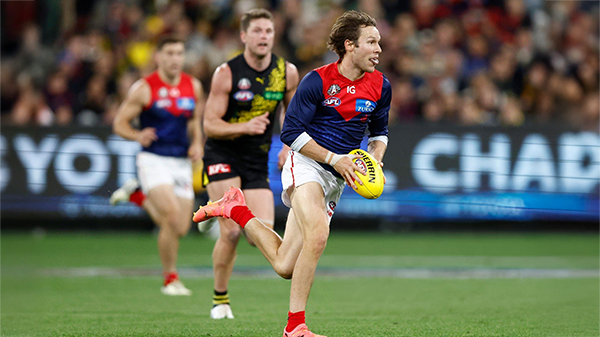
2024 PLAYER REVIEW: Ed Langdon
The Demon running machine came back with a vengeance after a leaner than usual year in 2023...
READ MORE
Demonland | November 13 
 Player Reviews
Player Reviews 
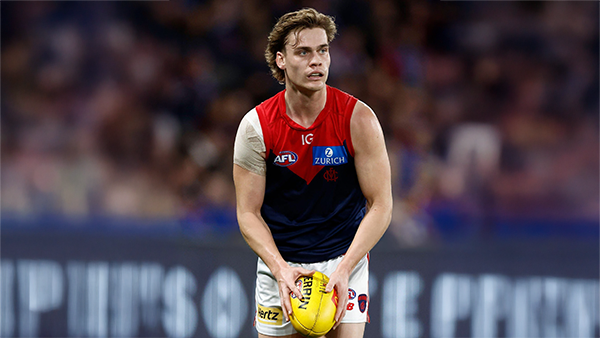
2024 PLAYER REVIEW: Trent Rivers
The premiership defender had his best year yet as he was given the opportunity to move into the midfield and made a good fist of it ...
READ MORE
Demonland | November 13 
 Trade Week
Trade Week 
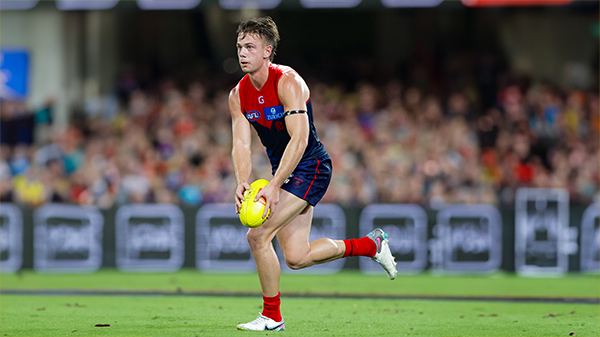
THE TRADING CHRONICLES Part 03 by Whispering Jack
It would be fair to say that when the Melbourne Football Club entered the free agency and trade period earlier this month, its reputation was flagging, if not in tatters ...
READ MORE
Demonland | October 19 
 Trade Week
Trade Week 
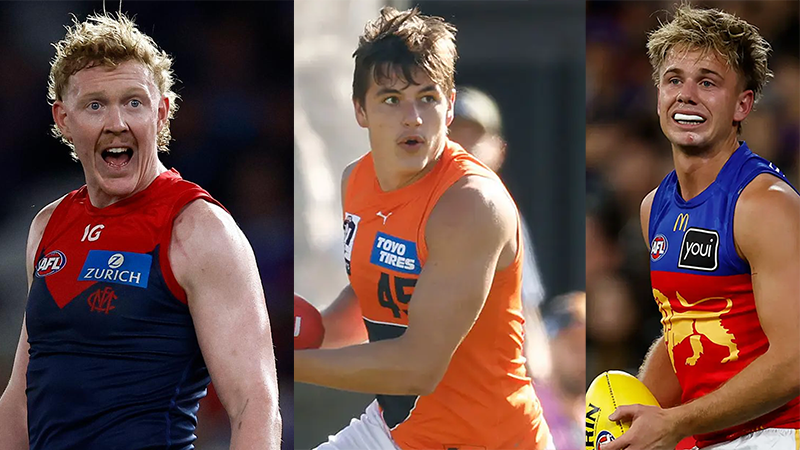
THE TRADING CHRONICLES Part 02 by Whispering Jack
Some critics find Test cricket boring, but the first week of the AFL trade period is even more tedious, often putting football fans to sleep. The past week has been no exception ...
READ MORE
Demonland | October 12 
 Trade Week
Trade Week 
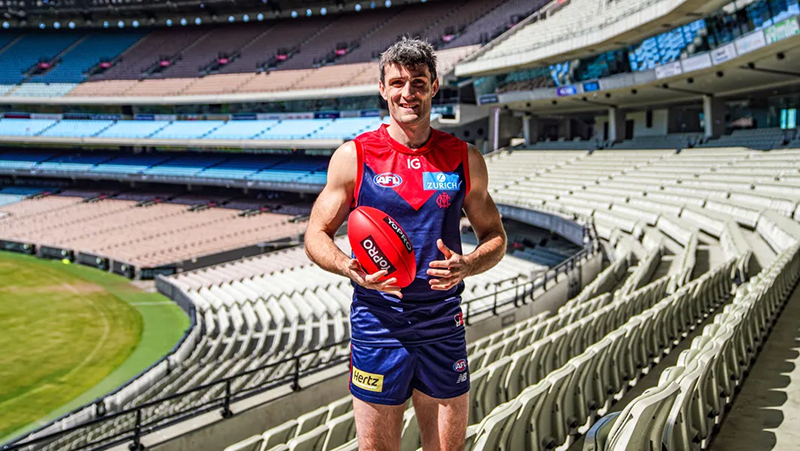
THE TRADING CHRONICLES Part One by Whispering Jack
The festival of player movement kicked off yesterday with the opening day of the Free Agency Period which resulted in six players changing clubs including journeyman ruckman Tom Campbell who landed at Melbourne, his fourth club after playing only 58 AFL games in 14 seasons ...
READ MORE
Demonland | October 05 
 MFC Forum
MFC Forum 
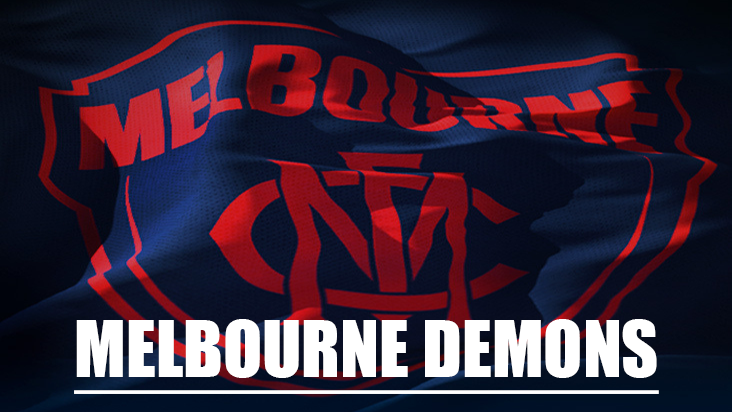
 Match Previews & Reports
Match Previews & Reports 

 Training Forum
Training Forum 
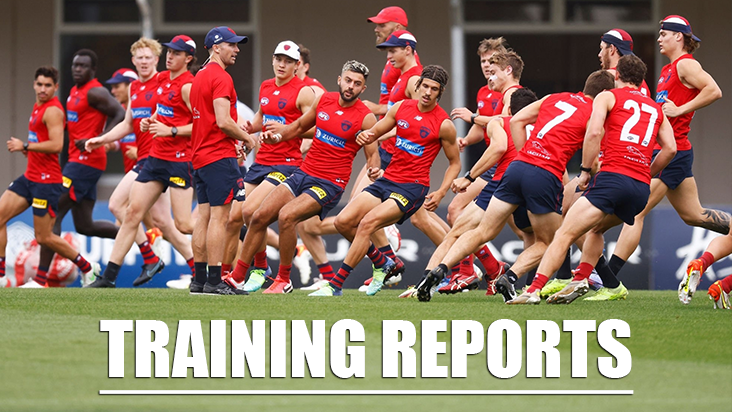
 AFLW Forum
AFLW Forum 
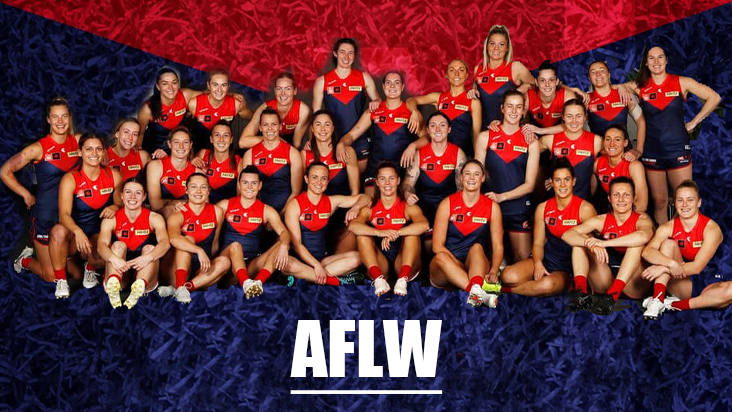
 2024 Player Sponsorship
2024 Player Sponsorship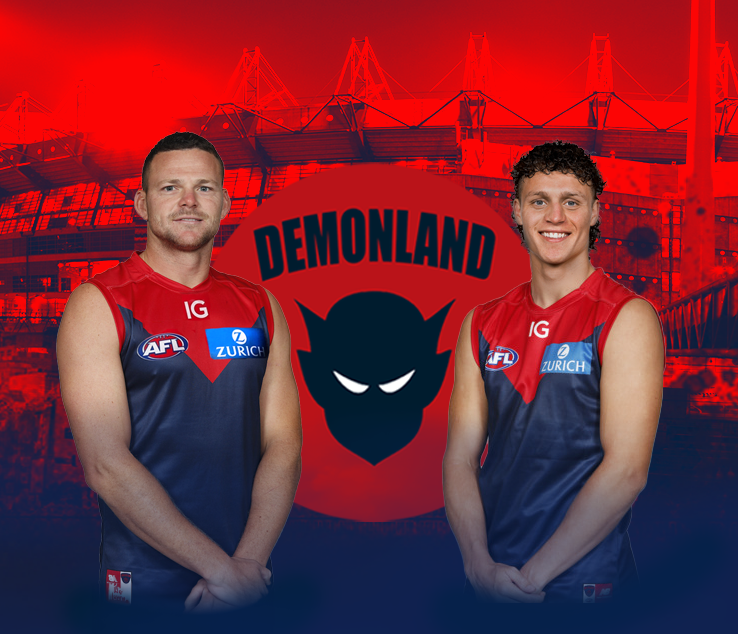
 Topics
Topics Player of the Year
Player of the Year 
PLAYER VOTES 1 
Max Gawn 220 2 
Jack Viney 123 3 
Trent Rivers 112 4 
Steven May 104 5 
Christian Petracca 97 6 
Alex Neal-Bullen 93 7 
Kysaiah Pickett 81 8 
Ed Langdon 79 9 
Clayton Oliver 65 10 
Christian Salem 60
FULL TABLE Demonland Interviews
Demonland Interviews 

































 Upcoming Events
Upcoming Events  ×
×- Create New...

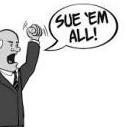

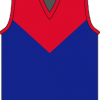

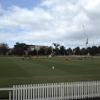
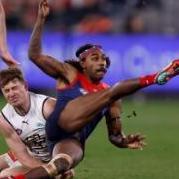
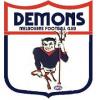

Recommended Posts
Join the conversation
You can post now and register later. If you have an account, sign in now to post with your account.